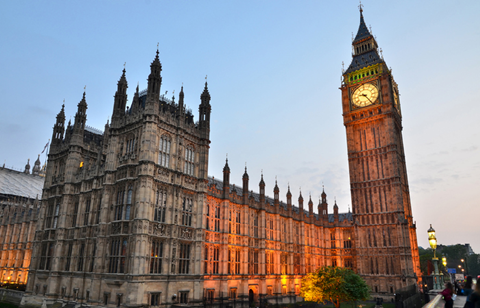
The government has announced a 'race at work charter' containing a series of measures to tackle ethnic disparities in the workplace.
Developed in partnership with Business in the Community (BITC), the charter sets out a number of principles and actions for businesses to commit to publicly. A number of high-profile organisations have already signed up, including NHS England, Standard Life Aberdeen, Norton Rose Fulbright, Saatchi & Saatchi, KPMG, RBS, the civil service, WPP, EY and the CIPD.
Prime minister Theresa May said: "Every employee deserves the opportunity to progress and fulfil their potential in their chosen field, regardless of which background they are from, but too often ethnic minority employees feel they're hitting a brick wall when it comes to career progression.
"That's why I'm delighted to launch the race at work charter, which gives businesses a clear set of actions to work towards in helping to create greater opportunities for ethnic minority employees at work."
Sandra Kerr, BITC race equality director, said: "All organisations should recruit from the widest pool of talent and support progression. The race at work charter will support leaders and line managers to take practical steps to tackle the barriers, with five clear actions. By signing up, we can ensure the workplace is representative of British society today."
Alongside the charter, the prime minister has launched a consultation on ethnicity pay reporting in response to data from the Race Disparity Audit, which revealed significant disparities in the pay and progression of ethnic minority employees compared with their white counterparts.
The consultation, open until January 2019, will set out details of what information employers should publish to allow for decisive action to be taken, while also asking employers how ethnicity data might be collected without placing undue burdens on organisations.
Peter Cheese, chief executive of the CIPD, said: "The CIPD has consistently highlighted the need for organisations to be more transparent about how they report on the diversity of their workforce and how they reward, manage and develop people as a catalyst for creating more diverse and inclusive workplaces.
"We fully support the principle behind ethnicity pay gap reporting and the need for meaningful action in this area that will drive genuine change. It is crucial that the insights and views of employers are fully taken into account during the consultation for any new law in this area to truly create more inclusive workplaces."
Cheese added: "It is also important to remember that ethnicity pay gap reporting will only have a positive effect if it leads to changes in how employees from a minority ethnic background are recruited, managed, developed and promoted. This is why there is a need for employers to report on their action plan in response to their ethnicity pay gap data if the proposed new legislation is to act as a game changer."
In addition the charter and consultation, the NHS, armed forces, schools and police forces are to set out plans to increase the proportion of public sector leaders from ethnic minority backgrounds. These include proposals from school leaders to address disparities in the teaching workforce, as well as the publication of the National Police Chief Council's first national diversity, equality and inclusion strategy.
Karen Blackett OBE, the government's race at work champion, WPP UK country manager and chairwoman of Mediacom UK and Ireland, said: "Embracing diversity and inclusion is not a choice, it's a business necessity. I'm committed to helping [organisations] address inequality at all levels by taking practical steps such as introducing apprenticeships, offering mentorships and capturing ethnicity data to create a more inclusive and representative workforce."











